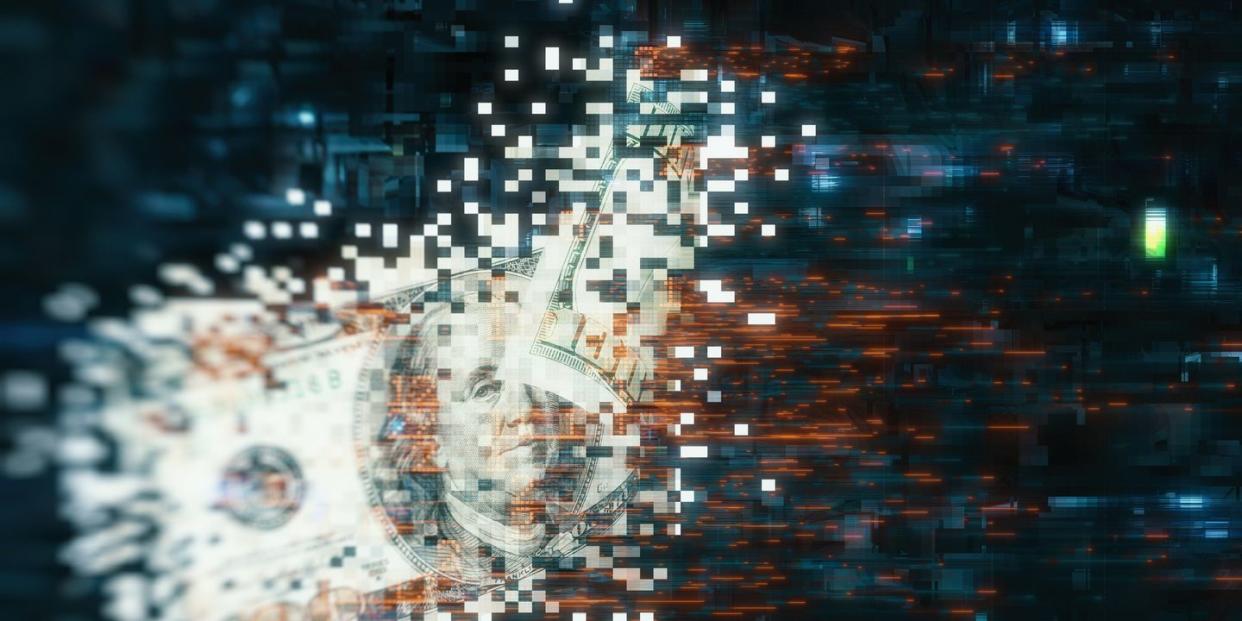The Government Is Playing Around With a Hybrid Crypto Dollar

The National Science Foundation has awarded $225,000 to KRNC, a blockchain startup that is designing crypto features for fiat dollars.
KRNC is developing a protocol that will allow test users to make purchases with their fiat dollars, while playing around with crypto features—all without having to actually purchase Bitcoin or Etherum.
No, this doesn't mean there are imminent plans to change the U.S. dollar.
One day, the U.S. dollar could look a lot more like Bitcoin.
Earlier this month, the National Science Foundation (NSF), an independent agency of the U.S. government, awarded a $225,000 research grant to KRNC, a Los Angeles-based blockchain startup. The goal is to create a new protocol that could add crypto features to our current fiat currency.
"KRNC takes the positives of Bitcoin and adds them to money the public already owns," Clint Ehrlich, the project’s chief scientist, said in a release. "It’s the virtual equivalent of taping gold to everyone’s dollar bills."
For the uninitiated, cryptocurrency is a form of digital money that uses cryptography to make it virtually impossible for bad actors to counterfeit or duplicate. Formats like Bitcoin and Ethereum are lauded for their underlying decentralized networks, based on a technology called blockchain.
Blockchain uses a disparate network of computers to "mine" the currency. To mine crypto, like Bitcoin, the computers must solve some sort of mathematical puzzle, and whichever miner does it first finishes the transaction. Because cryptocurrencies aren't issued by governments, and due to blockchain's distributed network, the digital currency is theoretically immune to government malfeasance.
Under the new NSF-funded research, scientists will work on a crypto protocol called Key Retroactivity Netowork Consensus (KRNC). It essentially allocates a scarce form of cryptocurrency, like Bitcoin, to fiat dollars. The researchers will distribute KRNC free of charge, so that they can interact with the hybrid money in proportion to their existing wealth. That way, anyone in possession of U.S. dollars can play around with the decentralized components of cryptocurrency without actually having to purchase it.
Sounds exciting, but the U.S. isn't necessarily planning to make a switch to cryptocurrency, or some hybrid fiat-crypto dollar ... yet.
Anna Brady-Estevez, the NSF program manager for the grant, told Coindesk that the funding "shouldn’t be misconstrued as an endorsement of any initiative to upgrade the U.S. dollar or make it more like bitcoin or any other cryptocurrency for that matter."
So for now, this is just a test—but it's a promising sign to see the NSF taking an interest in the theoretical limits of the fiat dollar. Without the correct preliminary research, the government would never adopt something as controversial as a crypto protocol. So let's chalk this one up as a win.
You Might Also Like

